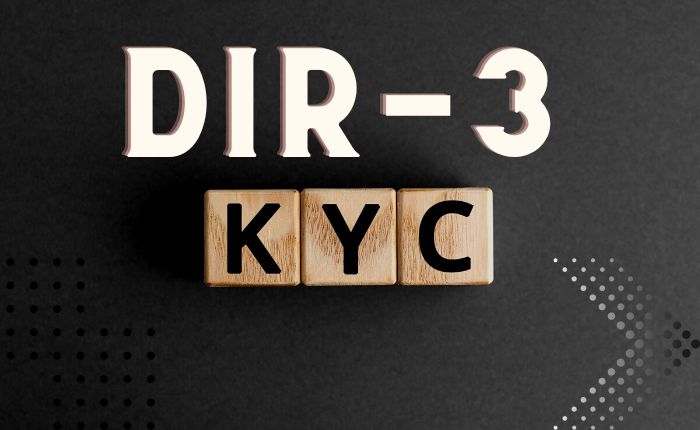A Director Identification Number (DIN) is a unique identification number assigned to individuals who are appointed as directors of companies in India. It is a unique 8-digit number that is assigned by the Ministry of Corporate Affairs (MCA) to track the activities of directors and ensure compliance with legal requirements. The DIN serves as a digital signature and helps to maintain a database of all directors’ details such as their name, address, and other relevant information. Any individual who wishes to become a director of a company in India must apply for a DIN.
Who Needs to File e-Form DIR 3 KYC?
- Any director whose Director Identification Number (DIN) was approved by the 31st of March 2022 must provide his KYC information, according to the MCA department’s notification. Moreover, the rejected directors must adhere to this process as well.
- Each director whose DIN has been approved and who has been assigned one at the end of the fiscal year must submit form DIR-3 KYC by September 30 of the following fiscal year.
Key Points while filing e-Form DIR-3 KYC
- While submitting this electronic form, the director must include their email address and mobile number. A One-Time-Password will be used to validate this information (OTP)
- Directors must submit this e-Form with their digital signatures.
- Directors must make sure that a Chartered Accountant, Cost Accountant, or Company Secretary who practises their profession has certified the e-Form.
Type of DIR-3 KYC Filing
- Updating of KYC Information using e-Form DIR-3-The DIN holder who has previously filed the e-Form DIR-3 KYC in prior fiscal years and who does not need to renew their KYC information but instead can make annual KYC updates is eligible to use the web services.
- DIR-3 KYC Updating through Web Services-When filing KYC information for the first time in accordance with the MCA, DIN holders who do not have access to web services must use the e-Form DIR-3 KYC. DIN holders who need to amend their KYC must also do so using the e-Form DIR-3 KYC. The web services for updating DIR-3 KYC cannot be accessed.
Deadline & Fees for Failure to Submit DIR 3 KYC
In India, the deadline for submitting e-Form DIR-3 KYC is 30th September of each financial year. If a director fails to file e-Form DIR-3 KYC within the deadline, the DIN will be marked as “Deactivated” by the Ministry of Corporate Affairs (MCA). To reactivate the DIN, the director will have to file the e-Form DIR-3 KYC along with a penalty of Rs. 5,000.
Additionally, if a director’s DIN remains deactivated for a continuous period of three years, it may be permanently canceled by the MCA. In such cases, the director will have to apply for a fresh DIN, which will require a new application and payment of fees.Therefore, it is essential for directors to file e-Form DIR-3 KYC within the deadline to avoid penalties and the deactivation of their DIN.
Documents Required to File DIR 3 KYC Form
- Details of Nationality
- Details of citizenship like gender, date of birth, etc.
- Permanent Account Number (PAN)
- Passport (compulsory when DIN holder is of foreign nationality)
- Driving License
- Aadhaar card
- Personal Mobile and Email ID
- Proof of Residential address.
- Voters Identity card
Besides, the above-mentioned documents, directors must also be prepared with the following things:
- His digital signature to file the form
- a certification from a licenced CA, CS, or cost accountant who is currently engaged in their profession. In the case of foreign nationalities, attestation by the designated authorised person
- A statement from them (the applicant or director) duly attested by CA, CS, or Cost Accountants who are currently engaged in their profession
Process to File DIR 3 KYC Form
Step 1: Download the form-
The DIR-3 KYC form must be downloaded from the MCA website as the first and most important step.
Step 2: Fill in the DIN details-
- Directors must complete the DIN in the KYC form with a “Approved” status
- Directors whose DIN has been deactivated due to the failure to file KYC Forms may fill out the form beyond the deadline by paying a late filing fee.










